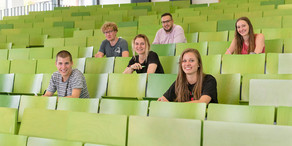Folgen energetischer Sanierung
- Forschungsprojekte
Projektbearbeiter_innen, ggfs. Projektleitung
Dr. Sandra Huning
Kooperationspartner_innen (ggfs.)
Prof. Dr. Katrin Großmann, FH Erfurt
Laufzeit/Dauer
April 2014 - August 2015
Finanzierung
Eigenforschung
Publikationen, die aus dem Projekt hervorgegangen sind, ggfs. Abschlussbericht
Großmann, Katrin/Huning, Sandra: Energy-efficient retrofitting and affordable housing: Open questions for urban research and practice. Paper presented at the RC21 International Conference on “The Ideal City: between myth and reality. Representations, policies, contradictions and challenges for tomorrow's urban life” Urbino (Italy) 27-29 August 2015
Projekt
This research cooperation addresses the impact of energy-efficient retrofitting strategies on the provision of affordable housing. The German National Action Plan on Energy Efficiency promotes the renovation of buildings, in particular in terms of thermal insulation. Not only – it is argued – do renovations increase energy efficiency and contribute to climate protection, but they are also supposed to help private households lower their energy bills in times of rising energy costs. In practice, this strategy has been highly contested. In many cases, rents have increased, in spite of savings on the energy bill. On the one hand, this reduces the availability of affordable housing. On the other hand, poor households may have to move to less insulated housing stock, which will lead to ever increasing energy bills. The positive outcome of retrofitting – more energy efficiency in the building sector – is thus compromised by the danger of a new kind of segregation that is induced by energy-efficient retrofitting and reorganizes socio-spatial urban structures in an unwanted way.
The research is work in progress. Since empirical data is still rare, It focuses on case studies to confirm or contradict these observations. Two student projects conducted case studies in Dortmund and Erfurt in 2014/15, using secondary data analysis, expert interviews and non-representative surveys among residents in neighbourhoods transformed by large-scale retrofitting measures. The results show that housing policy and environmental policy do not necessarily go hand in hand, but may interfere to lead to unwanted side effects, particularly for those households already most sensible to housing costs.
Several finished and on-going Bachelor and Master theses deal with different aspects of the topic in different urban settings.





